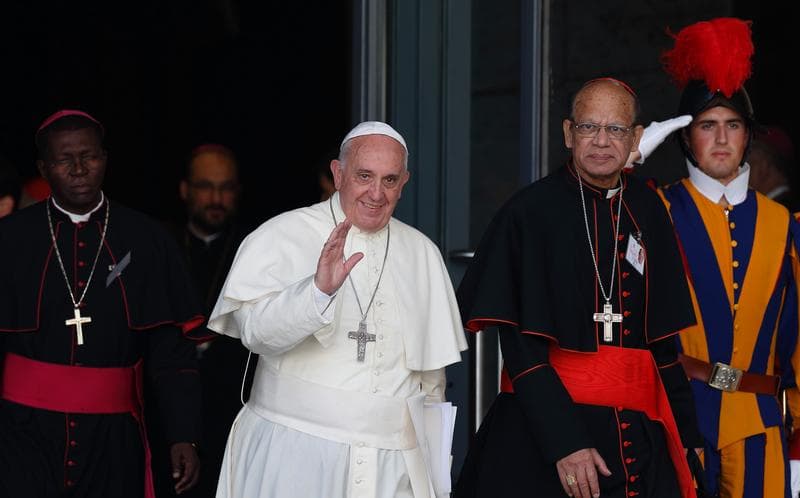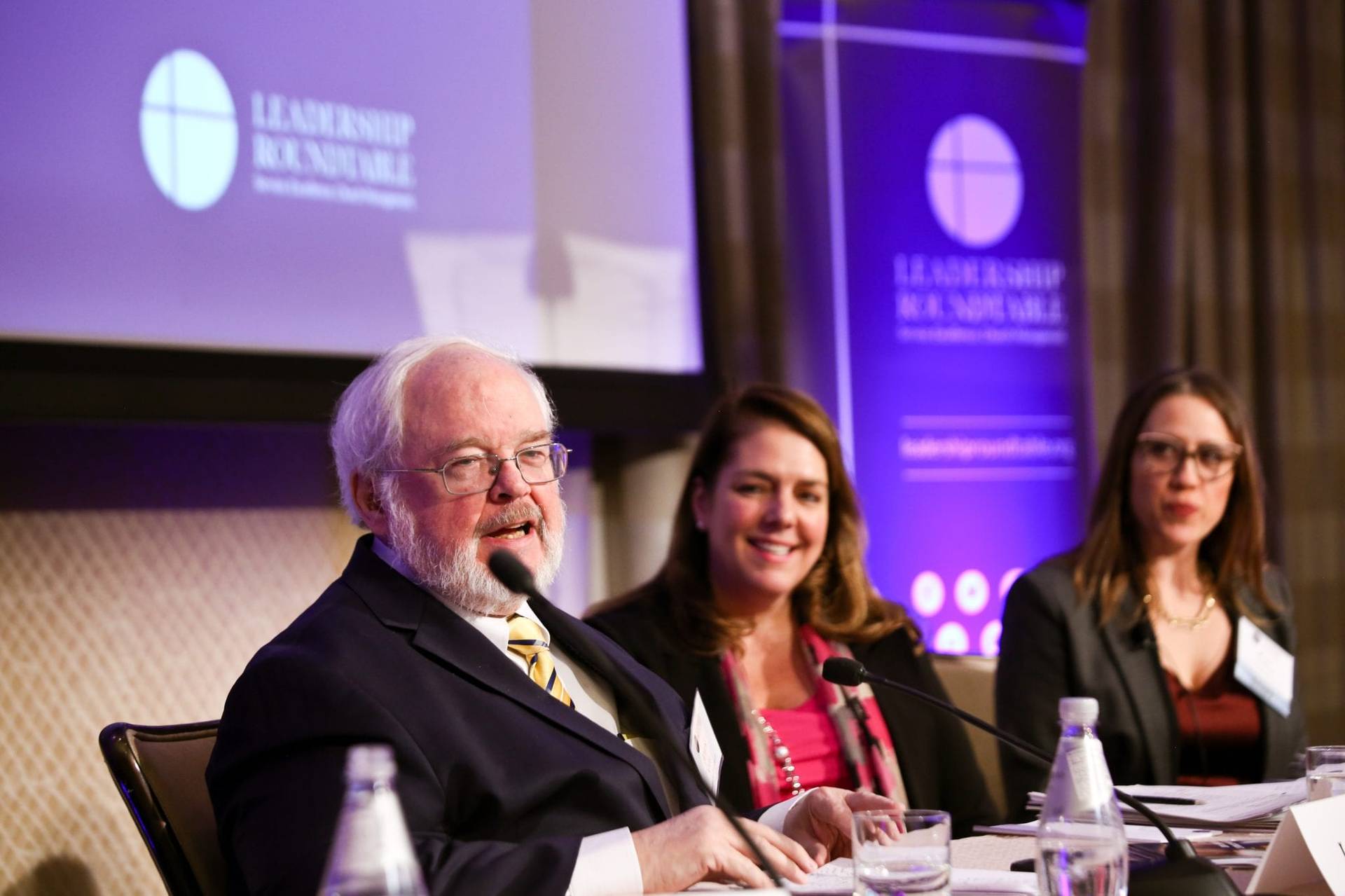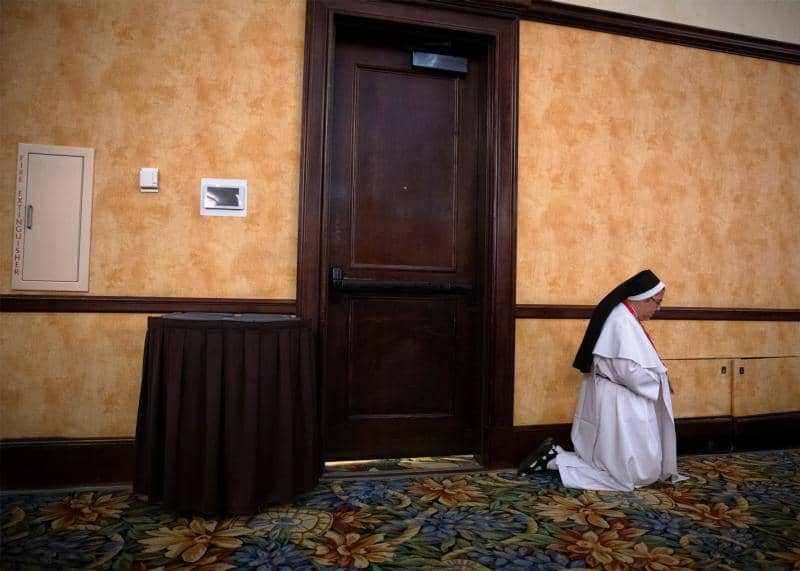ROME – Starting day two of Pope Francis’s high-stakes summit on clerical sex abuse with a bold and challenging tone, Cardinal Oswald Gracias of Mumbai, India, said it’s not just a Western problem, but something the entire global Church must own up to and commit to fighting.
Gracias, a member of Francis’s council of cardinal advisers and part of the organizing committee for the summit, said clerical sexual abuse “is not a limited phenomenon.”
“The entire Church must take an honest look (and) act decisively to prevent abuse from occurring in the future, and to do whatever possible to foster healing for victims,” he said, stressing that “no bishop may say to himself, ‘This problem of abuse in the Church does not concern me, because things are different in my part of the world.’”
“We are each responsible for the whole Church,” he said, adding that sexual abuse is not just a problem in Western nations such as the United States or Australia that have faced public scandals in recent years.
“This, brothers and sisters, is just not true,” Gracias said, noting that “there are cases even in Asia and Africa.” The Church as a whole must conduct an examination of conscience on how it has handled the issue, he said, “because we in leadership roles did not do enough.”
Gracias’s speech came as many bishops from Asia and Africa in particular are facing pressure over what is perceived to be a dismissive attitude toward sexual abuse, arguing that there are other, more pressing issues in their regions.
In a Feb. 21 press conference following the first session of the summit, Australian Archbishop Mark Coleridge of Brisbane said that in his discussion group, bishops from Africa and Asia had argued that there was an “obsession” with sexual abuse and wanted to discuss issues such as forced labor and child soldiers.
In an interview with Crux, Archbishop Philip Neehman from Tamale, Ghana said that “issues such as child abuse as it happens in Europe or America are not really that much of an issue [here].”
RELATED: Leading Ghana bishop says child sexual abuse ‘very, very minimal’ in Africa
“In general, there is a kind of agreement on that. We have other problems to battle with,” he said, yet in a separate interview with Crux, Archbishop Abel Gabuza of Durban said the sexual abuse of minors is being “kept secret” in Africa and stressed that “the abuse of minors can’t be easily dismissed as a ‘Western thing.’”
In his speech, Gracias said he was moved by a meeting with abuse survivors on Wednesday, the day before the summit began, and asked participants, “How do we respond to them, how do we help them?”
“We can hardly ever get it right,” he said, adding, “We must have the humility to admit that we have made mistakes.”
Insisting abuse is a global phenomenon, Gracias stressed the need to develop intercultural bodies for exchanging information and decision-making, and which would operate with a “singular and unified vision” that’s flexible and adaptive to the diversity of context with the universal Church.
Gracias urged fellow bishops to own up to the issue by meeting with victims and engaging in the Church’s traditional practice of fraternal correction. He also encouraged them to ask for help if they are unsure of what to do, and to keep strong ties with Rome and the Holy Father.
He highlighted various challenges the Church faces in overcoming abuse, including the loss of credibility after having failed to listen to victims and prioritizing institutional interests over their needs.
To find an answer “does not mean a quick or definitive resolution,” he said, but it does require concrete action, including admitting one’s mistakes and pursuing justice including at the civil level.
“The Church does not only live in an isolated world of its own making. The Church lives in the world and with the world. Those who are guilty of criminal behavior are justly accountable to civil authority for that behavior,” he said, and stressed the need to pursue healing for victims and to offer their best practices to wider society as a resource to curb abuse in other sectors.
“As we encounter the suffering of victims, we are never more conscious of our status as the pilgrim people of God. We know that we have not yet arrived at our destination. We are aware that our journey has not been along a straight path,” he said, adding that the Church, and bishops themselves, “must repent. We need to seek pardon.”
As the abuse crisis has unfolded and more stories come to light, “we have come to know that there is no easy or quick solution,” he said, adding that to find a solution, bishops must “move forward step by step and together.”
Gracias himself has come under fire recently for his handling of abuse cases in India, though supporters of the 74-year-old cardinal insist that he acted promptly both to investigate cases and to offer support to victims.
Cardinal Blase Cupich of Chicago, also a member of the summit’s organizing committee, stressed the need to involve “all the baptized at every level – in parishes, dioceses, national and regional ecclesial bodies – in a discernment and reform that penetrates throughout the Church.”
“A process that merely changes policies, even if it is the fruit of the finest acts of collegiality, is not enough,” he said.
Many Catholics question whether Church leaders fully understand the reality of abuse, he said, especially “when they see little care given to abused children, or even worse, when it is covered up to protect the abuser or the institution.”
Cupich stressed that no policy or structural change will be effective unless bishops anchor their discussions “in the piercing pain of those who have been abused and of the families who have suffered with them.”
Cupich also stressed the need for legal and structural reform, including greater accountability. Such measures, he said, must be “just and sure,” including sanctions for guilty parties. He noted that the Church already has laid the groundwork in Francis’s 2016 motu proprio, “Like a Loving Mother,” which states that negligence on the part of bishops and religious superiors is enough to remove them from office.
Cupich said what needs to be done now is to enact “clear procedures” when there is a clear-cut case for the removal of a bishop for “grave reasons.”
He offered suggestions for policies on child protection, including standards for the investigation of bishops, mechanisms for reporting allegations against a bishop, and procedural steps that are both modern and rooted in the Church’s tradition.
Among other things, he said the reporting of an allegation should not be impeded by “official secret or confidentiality rules,” referring to the requirement of confidentiality for procedures under Church law.
[This story will be updated.]















